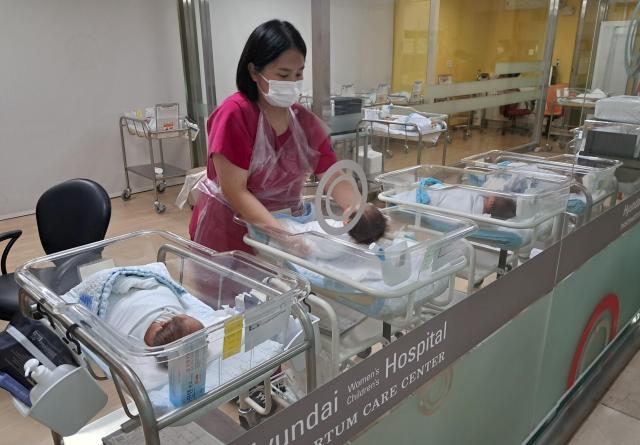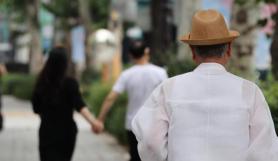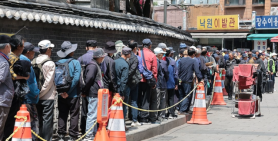
About 13,800 babies — 5.8 percent of all births last year — were born to unmarried parents, according to data released Wednesday by Statistics Korea.
While the share remains small compared with Western nations, it marks a sharp increase from just 2 percent a decade ago. The rate climbed to 3.9 percent in 2022, 4.7 percent in 2023 and now nearly 6 percent, the highest on record.
The change appears to mirror evolving social attitudes.
In surveys, 37 percent of South Koreans said they now support having children outside marriage, up from 22 percent in 2021. Statistics officials attributed the rise to shifting views on family and a growing acceptance of nontraditional households.
Overall births in South Korea ticked up for the first time in more than a decade, totaling 238,300 in 2024 — an increase of 3.6 percent from the year before. The country’s fertility rate also inched up, to 0.75 from 0.72, halting a nine-year slide but remaining the lowest among major economies and far below the replacement rate of 2.1.
Still, policymakers saw some hopeful signs. Births within two years of marriage rose for the first time since 2012, and the average age of mothers crept up only slightly, to 33.7 years, while fathers averaged 36.1.
Women in their early 30s had the highest birth rate, with 70.4 births per 1,000 women.
Other indicators reflected longer-term demographic challenges. Multiple births made up 5.7 percent of the total, while premature births under 37 weeks rose to 10.2 percent, the highest level since records began for single births.
Although South Korea has one of the world’s lowest fertility rates, the rise in nonmarital births suggests a gradual loosening of cultural constraints.
Whether that shift will translate into more children overall remains unclear — but officials say it signals that younger generations may be reimagining what family looks like.
Copyright ⓒ Aju Press All rights reserved.


![[K-Tech] Low birthrate forces military pivot toward drones, automation](https://image.ajunews.com/content/image/2025/07/17/20250717150357642333_278_163.jpg)

